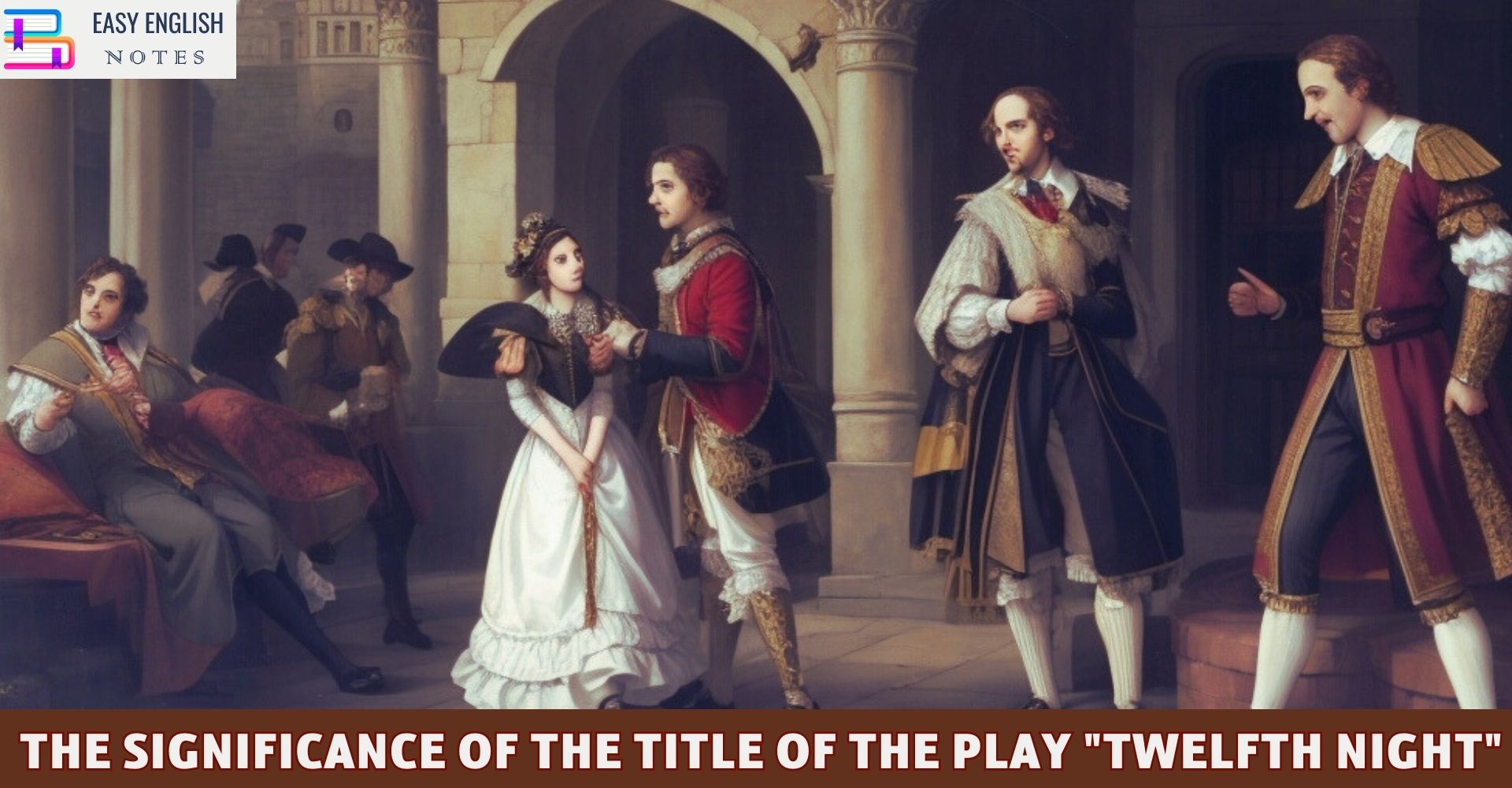Most people believed that Shakespeare wrote this play for performance on the 12th night after Christmas, probably at the court of Queen Elizabeth. It is believed that the Twelfth Night was one of the four plays chosen for performance for Queen Elizabeth in the Christmas season of 1601.Shakespeare gave the play a genial spirit to match with the festivity and revelry of the occasion.
Shakespeare also gave the play a secondary title, ‘What You Will’. This seems to be prompted by the combination of comedy and romance with the serious, which could easily have become tragic. Shakespeare seems to be telling us that we may call the play a comedy or a tragedy as we will, since it does not belong to any particular genre. The play has a combination of the serious and the comic, and even the ending of the play leaves a cloud since the love of Sir Andrew and Malvolio remains unrequited and unreciprocated We may have eloquent and authentic reasons for not wishing to have any other fate for the two, but if we are to accept the comedy to end on a happy note of love and marriage, we ought to wish the same for these two as well. The point is that Shakespeare’s was as much a romantic as a realistic point of view. Though in his comedies he let the romantic element prevail he never let the reality totally allude his dramatic purpose.
Also Read :
- Compare Hamlet with Macbeth, Othello and other Tragedies
- “The Pardoner’s Tale” is the finest tale of Chaucer
- Prologue to Canterbury Tales – (Short Ques & Ans)
- Confessional Poetry – Definition & meaning
- Line By Line Explanation Of The Poem The Eve of St. Agnes
Most critics believe that Shakespeare was rather careless in naming his comedies. He was very precise in naming his historical and tragic plays. The present comedy has a merry atmosphere since it was written for a merry occasion. The name of the play was given since it was to be played at the court of Queen Elizabeth on the twelfth night after Christmas which fell on 6th January. Traditionally this night is celebrated in England and other Christian countries with festivity, drinking and dancing. There is a spirit of gaiety and abandonment as all sorrows are thrown to the winds. Read the Twelfth Night’ and this gaiety and revelry becomes abundantly clear. Thus the main title of the play has a profound relevance. For the first time Shakespeare also gave a secondary title to his play. “What You Will’ is the sort of title which gives the readers and audience a levity not only to change the title as they wish but also to deem the play as a tragedy or comedy as per their own perceptions. He knew that his play would not lose its relevance if another title was given to it. Moreover, people see life in comic or tragic terms as per their own perception of it, and are thus free to do so to his play as well, which in any case captures the rhythm of life. The dramatist is merely inspiring the imagination of his audience to create a title for his play as per their own perceptions of it. This gives an added bite to the play since the audience and the readers can indulge in a mental exercise and introspection long after they have seen or read the play. The two characters who do not get married are Malvolio and Sir Andrew, but since one is a meck character and the other is surrounded in self love, we would not want them seriously to have a life partner, for they are bound to make lives of their spouses miserable. In an odd way Malvolio gets what he desires, the authority to punish his tormentors. Maria always wanted status and rank, which she acquires through Sir Toby. Thus the secondary title of the play conveys to us the immense variety of wishes that are granted. A secondary title does not fall in the recognised parameters of a drama, be it a tragedy, a comedy, a history or a masque. Yet the secondary title appears perfectly normal to us and we merely consider it as a device to add variety to its already multifarious forms. Moreover, both the main and the secondary titles are very apt and we would not want them changed in any way.
PLEASE HELP ME TO REACH 1000 SUBSCRIBER ON MY COOKING YT CHANNEL (CLICK HERE)











